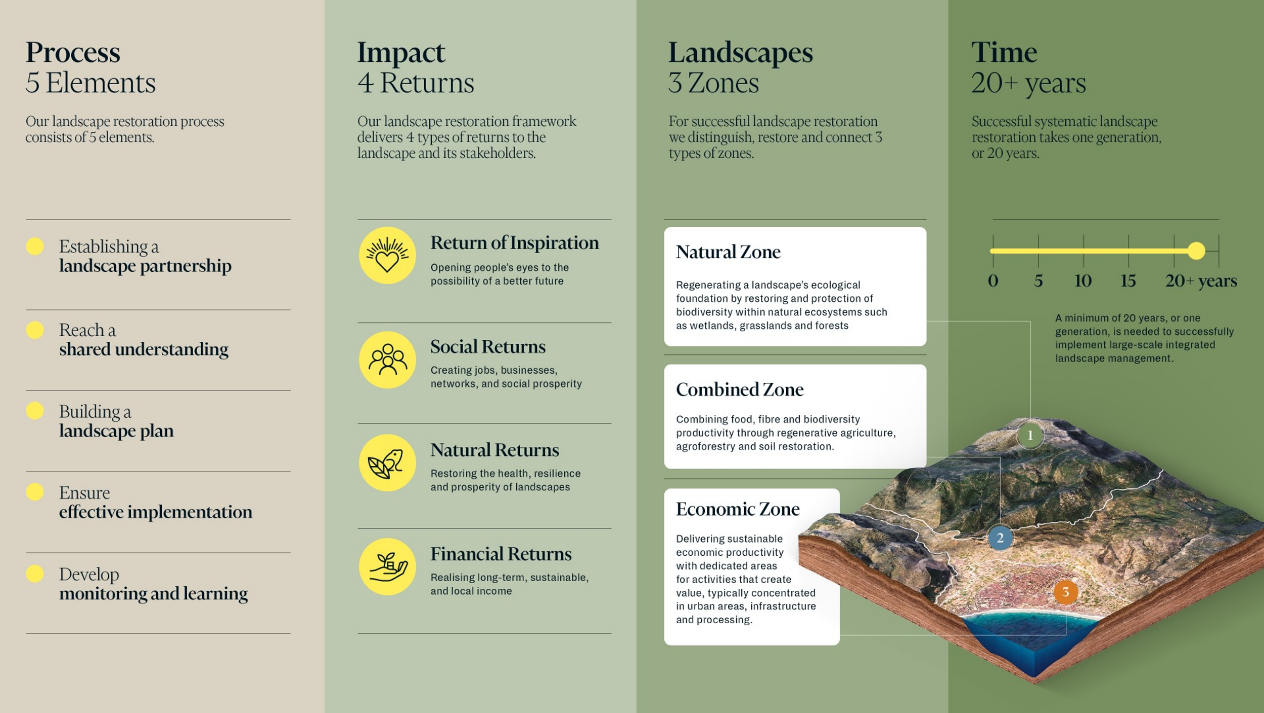In its novel, holistic approach to natural lake conservation, EUROLakes project builds upon the 4 Returns Framework for Landscape Restoration – amethodology designed to seek sustainable, long-term solutions at the landscape level, with the aim of achieving four types of returns: Return of Inspiration, Social Returns, Natural Returns and Financial Returs.
During the kick-off meeting at the University of Viterbo “Tuscia” held in Italy in October 2024, partners participated in their first internal workshop dedicated to the 4 Returns Framework (4RF) integration in EUROLakes methodology. The event was conducted by Wetlands International and Landscape Finance Lab, who have worked with Commonland since 2021 to improve the Framework with a focus on enabling its application on the ground.
One objective of this first familiarization was to strengthen the skills of the consortium to align the 4RF with other tools and practices they are bringing into the project. A second objective was to create a shared understanding of the process at landscape level, by making use of the 5 process elements of the 4RF: Landscape Partnership, Shared Understanding, Collaborative Vision and Planning, Taking Action, Monitoring and Learning.
What did we learn?
- The presented case studies from Indonesia and Scotland demonstrated that 4RF is a practical real-life applicable system change framework that addresses challenges at the level of the landscape. In other words, it takes into account socio-environmental verticals, intertwined with both, natural and human-modified land and water ecosystems, bearing also evidence of distinct ecological, historical, economic and sociocultural processes and activities.
- The Framework’s 5 elements offer a structured and purposeful approach to engaging with landscape partners through inspiring people to collaborate towards a long-term shared vision of the landscape. Ultimately, the 5 elements seek to establsih balance among sometimes competing stakeholder goals.
- The 4RF can be adapted to combine with other methodologies, such as the Participatory Multicriteria Analysis (PMCA), to co-create comprehensive sustainable management strategies and deliver multiple benefits for the biodiversity and climate while incorporating community values and priorities.
Follow EUROLakes on social media and subscribe to our newsletter to learn more about the next two stages in this capacity building endeavor.





